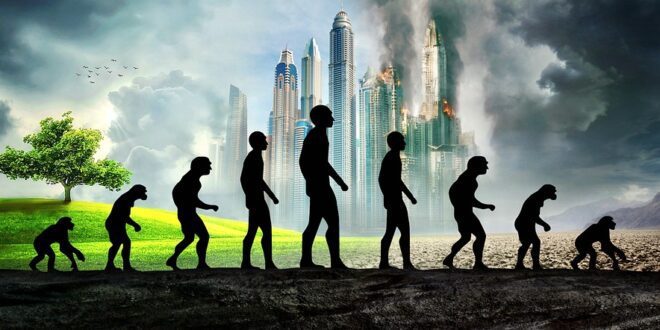How Human Evolution Could Shape Our Future: Expert Analysis and Predictions
Introduction
As we continue to explore the mysteries of our past, our understanding of human evolution has grown and allowed us to gaze into a future where evolution continues to shape us. This expert analysis outlines fascinating predictions and speculations that may influence our ongoing journey as a human race.
Uncharted Territories of the Human Mind
The human mind, with its untapped potential, remains an area of intense interest. Experts predict that our rapidly advancing technology will converge with our evolving cognitive abilities to reveal astounding possibilities. By harnessing genetic engineering, brain-computer interfaces, and artificial intelligence, we may expand our capacity for creativity, understanding, and higher consciousness. Imagine a world where mental barriers are dismantled, unlocking our true potential as Homo sapiens!
The Perils and Possibilities of Genetic Manipulation
Genetic manipulation has the potential to reshape the course of human evolution. With gene-editing technologies like CRISPR-Cas9 becoming increasingly precise, modifying our genetic code could eradicate hereditary diseases, strengthen our immune systems, and enhance our physical capabilities. Ethical concerns, however, loom large. Striking a delicate balance between using this technology for biomedical breakthroughs and avoiding unintended consequences will play a crucial role in shaping our future.
Adapting to a Changing Environment
Climate change poses one of the most significant challenges to human survival. However, experts believe that with ongoing evolution and human ingenuity, we can rise to the occasion. As temperatures rise and sea levels increase, our bodies may gradually adapt, incorporating enhanced heat resistance and water-retention capabilities. Collaborative efforts to counter climate change, combining genetic adaptations and sustainable practices, could hold the key to our continued existence on this planet.
Advancements in Lifespan and Reproduction
The quest for longer, healthier lives is an eternal human endeavor. Through advancements in medical science, our lifespan may significantly extend in the future. Evolution could favor genes that promote longer lifespans and delayed aging. With the possibilities of reproductive technologies such as in vitro fertilization and artificial wombs, human reproduction may undergo substantial changes as well. Society will need to adapt its understanding of family structures and societal norms to embrace the unique challenges that may arise from extended lifespans and new reproductive methods.
A Diverse and Unified Global Population
The global nature of our interconnected world is widely recognized. Migration and cross-cultural interactions continue to shape the fabric of our societies. Evolutionary geneticists predict that our diverse interactions will lead to increased admixture, blending different genetic pools from around the world. As humanity intermingles, we may witness the emergence of a more unified human population, promoting greater understanding, empathy, and intercultural collaborations.
Conclusion
The future of human evolution carries tremendous potential and exciting possibilities. As we venture into uncharted territories of the mind, harness the power of genetics, adapt to a changing environment, and explore new horizons in reproduction, our shared journey as a species will continue to unfold. By embracing these changes with foresight and compassion, we have the opportunity to shape a future where our potential as human beings thrives, leading us towards remarkable progress and unity.
 Mind Uncharted Explore. Discover. Learn.
Mind Uncharted Explore. Discover. Learn.




